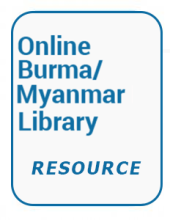Land Library
Welcome to the Land Portal Library. Explore our vast collection of open-access resources (over 74,000) including reports, journal articles, research papers, peer-reviewed publications, legal documents, videos and much more.
/ library resources
Showing items 10 through 18 of 1216.Reshmi Banerjee gives an overview of climate change-related risks for Myanmar...According to the 2016 Climate Risk Index, Myanmar is the second most vulnerable country in the world to the effects of climate change.
Executive Summary:
"Myanmar has been engaged in a process of political change since 2011. A central goal of these reforms
has been the attempt to resolve political conflicts between ethnic armed organisations (EAOs) and the
Myanmar Government. Talks began under the ‘civilian
မြနမ် ာနိငု ်င၏ံ
ရေရှညတ် ညတ် သံ့ ည့ ်
မြေယာအပု ခ် ျုပေ် ရးနှင့ ်
စီမခံ န့ခ် ွဲမစှု နစ်ဆသီ ိ့…ု .
မြေယာကဏ္ဍ၏ လိအု ပခ် ျကမ် ျားအပေါ် စစီ စအ် ကဲဖြတမ် ဆှု ိငု ရ် ာ
အကြောငး် အရာအလိကု ် မဝူ ါဒရေးရာမတှ စ် မု ျား
This policy note on Land Policy and Regulatory Framework in Myanmar is the first of five policy notes
prepared under the Land Sector Needs Assessment technical assistance initiative between the World Bank
This article seeks to investigate whether concern for food security and investment liberalization are the principle drivers of land-grabbing in Africa.
Sub-Saharan Africa has always been perceived as a land-abundant continent. Deininger & Byerlee (2011) estimate that the continent has the largest area of potentially available uncultivated land.
In the paper land reform in South African political discourse will be investigated, especially the process of its politicization. How the topic of land reform is used by political forces, especially the ruling party; the African National Congress and current President Jacob Zuma.
This article aims to explore the causes of informal settlements in Ekurhuleni Metropolitan Municipality (EMM).
In the recent explosion of attention given to the land grabbing phenomenon, contract farming has been identified as a potentially inclusive alternative for smallholders to outright acquisition of farm land by agri-business capital.






